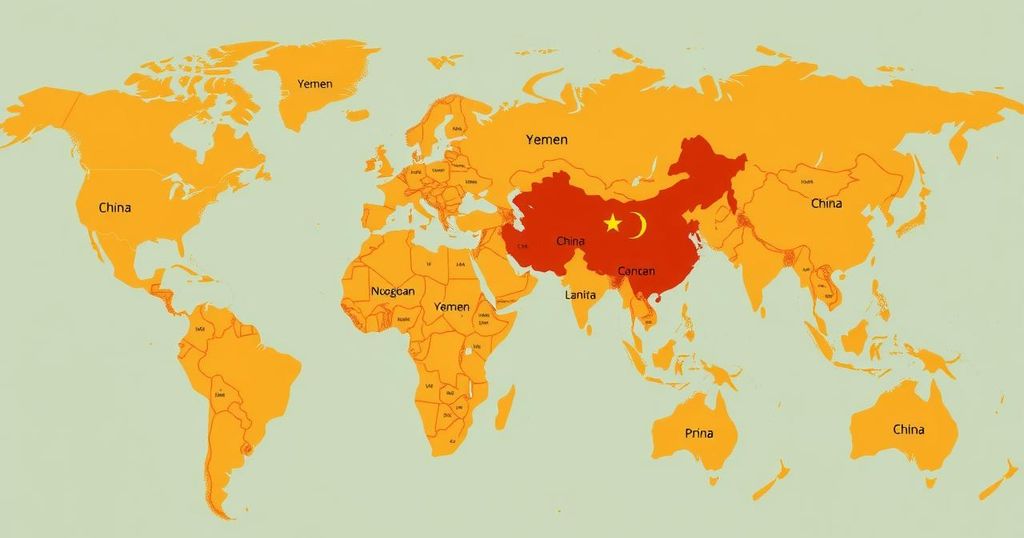economics
ASIA, CABINET, CANADA, CHINA, CRUDE OIL IMPORTS, CUBA, DONALD TRUMP, EUROPE, EUROPE/ASIA, GAZA, GAZA STRIP, GLOBAL ECONOMY, INFLATION, MEXICO, MIDDLE EAST, NORTH AMERICA, OECD, OIL INDUSTRY, OIL PRICES, OIL PRODUCTION, PHILIPPINES, RED SEA, ROBERT RENNIE, RUSSIA, SHA, SOUTH AMERICA, STATE COUNCIL, TRUMP, U. S, U. S. WEST TEXAS, UKRAINE, UNITED STATES, VENEZUELA, WESTPAC, YEMEN
Isaac Bennett
0 Comments
Oil Prices Experience Minor Gains Amid Global Economic Concerns
Oil prices have risen slightly due to Middle Eastern instability and China’s economic stimulus initiatives, despite global growth concerns. Brent futures increased to $71.24 and West Texas Intermediate rose to $67.72. Analysts highlight various supportive factors, while risks from tariffs and supply growth loom large.
Oil prices experienced a slight increase on Tuesday due to instability in the Middle East and China’s economic stimulus plans, despite ongoing global growth concerns. Brent futures rose by 17 cents, or 0.2%, reaching $71.24 per barrel, while U.S. West Texas Intermediate crude increased by 14 cents, also 0.2%, to $67.72 per barrel. Analysts from ING noted that various factors, including U.S. strikes on the Houthis and improved Chinese retail sales data, have supported market conditions.
China’s government recently introduced an action plan aimed at revitalizing domestic consumption through a variety of measures, including increased incomes and childcare subsidies. Furthermore, January-February economic data revealed stronger-than-anticipated retail sales growth, despite a decline in factory output and a rise in urban unemployment.
In addition, crude oil throughput in China increased by 2.1% year-on-year during January and February, influenced by new refinery operations and heightened travel during holidays. President Donald Trump’s commitment to continue military actions against Yemen’s Houthis until they cease maritime attacks has also contributed to market support for prices.
The ongoing Israel-Palestinian conflict remains a critical issue, as Israeli airstrikes reportedly resulted in the deaths of at least 200 individuals in Gaza. Concurrently, the OECD has expressed concerns regarding oil demand due to potential economic slowdown triggered by tariffs imposed by the U.S., which could negatively impact energy requirements in North America.
Robert Rennie from Westpac articulated concerns regarding the global supply, stating, “With global supply surging and tariffs and trade wars set to hit global demand, we remain of the view that prices will head lower and eventually reach the mid $60s.” Additionally, Venezuelan state-owned PDVSA plans to maintain oil production and exports through its joint venture with Chevron, even after the expiration of the U.S. company’s license. Further dialogue between President Trump and Russian President Putin regarding the Ukraine conflict has increased speculation about sanctions, which may affect global oil supply rates.
In conclusion, oil prices are currently influenced by multiple factors, including geopolitical instability, economic stimulation plans from China, and ongoing global economic concerns. Despite slight increases, experts predict potential declines in prices due to expected growth slowdown in North America, alongside increased global supply from countries like Venezuela. Future developments in international negotiations and trade relations will significantly shape the oil market landscape.
Original Source: shafaq.com




Post Comment